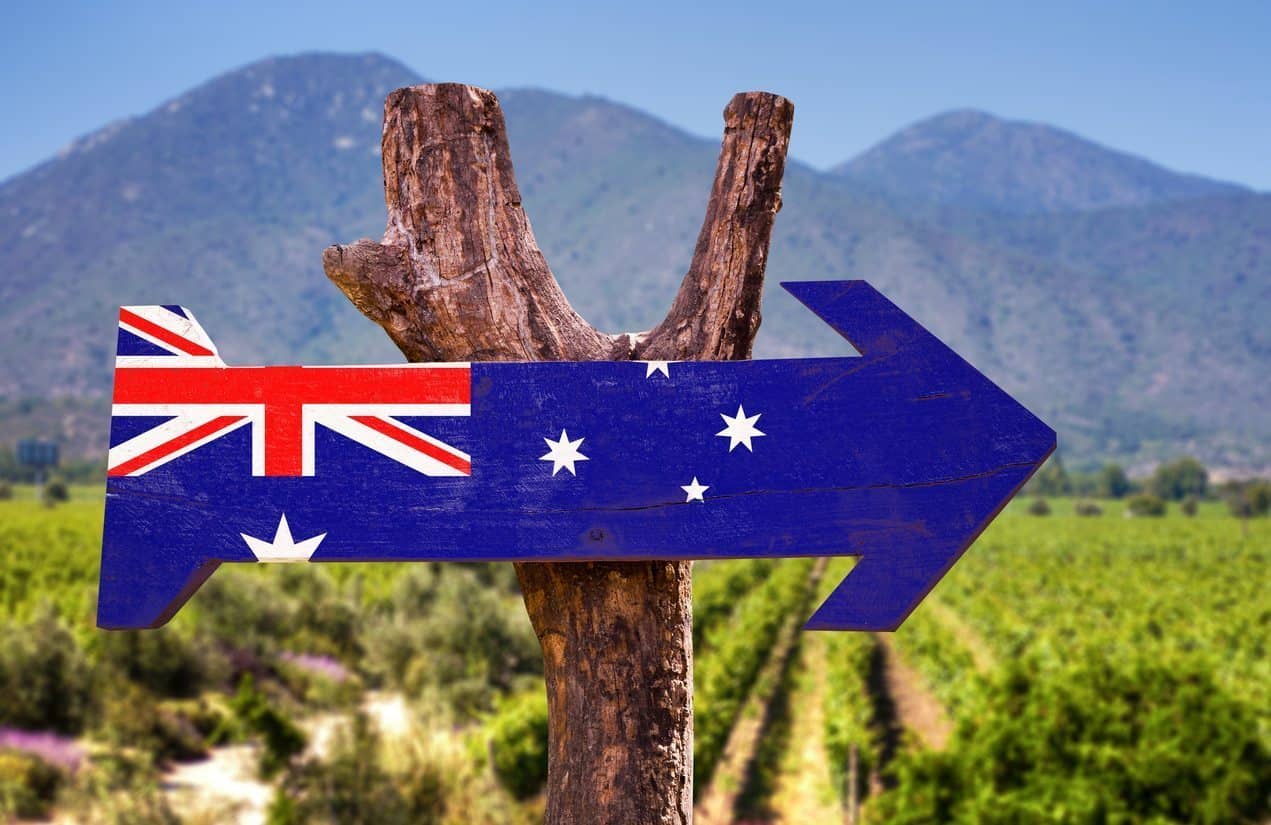Customs Procedures: Arriving and Departing Australia
To ensure a smooth customs experience in Australia, prepare the following:
- Required Documents: Passport and a completed passenger card (incoming or outgoing).
- Be Honest: Declare all items accurately on your passenger card to avoid penalties.
Customs officers may inspect baggage, ask questions, and use detector dogs to enforce regulations.
Key Rules:
- Declare prescription medications, food, and gifts exceeding duty-free limits.
- Prohibited items include fresh produce, meat, dairy, plants, illicit drugs, weapons, and endangered species products.
Tips:
- Check customs regulations before traveling.
- When in doubt, declare to avoid fines or legal issues.
Follow these guidelines for a seamless entry or departure from Australia.
Australia Border Control
Australia’s Customs Regulations: What You Need to Know
Australia enforces strict customs and border security laws to regulate what you can bring into the country. Being aware of these rules before you travel will ensure a smoother experience and help you avoid complications.
Customs Inspections at Airports
When traveling internationally, you and your luggage will undergo customs checks. These inspections ensure no dangerous goods or prohibited items are being transported. Upon arriving in Australia, you will go through an additional customs inspection.
Customs officers, supported by trained sniffer dogs, may ask you to open your luggage to check for restricted or prohibited items. Bringing such items into Australia can lead to severe penalties, including significant fines.
Documents Required for Travel
When entering or leaving Australia, you must present:
- A valid passport
- An Outgoing Passenger Card (for departures)
- Your boarding pass
Not having these documents ready may result in delays or missed flights.
Prohibited and Declarable Items
- Prohibited Items:
- All illegal drugs
- Counterfeit goods
- Certain forms of pornography
- Items That Must Be Declared:
- Firearms and weapons
- Currency over AUD 10,000
- Food, plants, medicines, and veterinary products
- Protected wildlife or heritage-listed artifacts
Penalties for Non-Compliance
Failure to declare items or attempting to bring prohibited goods into Australia can result in fines worth thousands of dollars, confiscation of goods, and other legal consequences.
Stay Updated
To ensure a trouble-free trip, regularly check Australia's official customs regulations before you travel.
Customs and Visa Australia
Presenting Documents
To pass through customs, you must present your passport with the appropriate visa for entry into Australia.
For Working Holiday Travelers
- Visa Label Requirement: If you’ve applied for a working holiday visa online, you may need a visa label in your passport to confirm your eligibility to work.
- Sydney Airport Arrivals: You can get your visa label printed at the visa label desk after your passport is stamped.
- Other Australian Airports: Visa labels can be obtained at the nearest Department of Immigration and Multicultural Affairs (DIMIA) office.
For Tourist Visa Holders with an ETA
- If you hold a Tourist Visa with an Electronic Travel Authorization (ETA), your visa details are stored electronically in the Australian Government's system.
- No physical visa label is required, as airlines verify your visa electronically before travel.
By ensuring your visa details are in order and knowing where to obtain any necessary labels, you can streamline your arrival in Australia.
Entering Australia
Items That Must Be Declared
1. Weapons, Ammunition, and Firearms
- Declare all types of firearms, including replicas.
- Covers air guns, BB guns, and toy guns that discharge pellets using compressed gas.
2. Image-Enhancing and Performance Drugs
- Includes substances like DHEA, steroids, and human growth hormones.
- A permit is required to bring these drugs into Australia.
3. Cash
- Declare amounts of AUD 10,000 or more (or equivalent in other currencies).
- Applies to all forms of cash in all currencies.
4. Biological Goods, Animals, Plants, and Foods
- Includes items like animals, plants, food, sand, soil, and equipment containing these materials.
5. Medicines
- Declare all prescription medicines, vitamins, and traditional or herbal remedies.
- You may need:
- A permit
- A letter from your doctor
- Quarantine clearance
6. Protected Wildlife
- Declare living wildlife and products derived from them, such as:
- Coral
- Ivory products
- Caviar
- Orchids
7. Heritage-Listed Goods
- Permits are required for importing or exporting items like:
- Artwork
- Archaeological objects
- Specimens
- Minerals, coins, and stamps
8. Products for Veterinary Purposes
- Declare all veterinary drugs and medicines.
9. Strategic and Defence Goods
- Permits are required for importing or exporting strategic and defense-related goods.
- For details, consult the Australian Customs Export Controls Guide.
By declaring these items, you can ensure compliance with Australian customs regulations and avoid potential penalties.
The Australian Quarantine and Inspection Service (AQIS)
When traveling to Australia, it’s important to comply with customs regulations, as you are responsible for adhering to these rules. While there are restrictions on importing or exporting certain goods, you should know which items you can bring into or take out of the country.
Australian Quarantine and Inspection Service (AQIS)
AQIS oversees the regulations surrounding the import and export of goods in Australia. Upon arrival, AQIS may inspect your luggage for prohibited items. Forbidden items will be confiscated and destroyed, and attempting to import them may result in fines.
Duty-Free and Tax-Free Items
Travelers can bring duty-free and tax-free items as part of their personal baggage, as long as they are not for resale. To claim duty-free allowances, you must declare the quantity and value of the goods.
Key Customs Regulations
- Prohibited or Restricted Items: Drugs, steroids, firearms, protected wildlife, and related products are strictly controlled. All animals, animal products, food, plants, and plant products must be declared.
- Currency: There is no limit on the amount of Australian or foreign cash you can bring into or take out of the country. However, amounts exceeding A$5,000 (or equivalent) must be reported.
- Duty-Free Allowances:
- Travelers aged 18 or over may bring:
- 1 liter of alcohol
- 250 cigarettes or 250 grams of tobacco
- Duty-free goods allowance:
- A$400 per person aged 18 or over
- A$200 per person under 18
- Travelers aged 18 or over may bring:
- Short-Term Visitors: Most personal-use items can be brought into Australia duty-free, as long as Customs is satisfied they are for personal use only.
For more information, you can visit the official Australian Customs website.
Customs and Quarantine in Australia
The AA Education Network is here to help you navigate Australia's customs and quarantine regulations. Understanding these rules is essential for a smooth journey and ensuring compliance with Australian laws.
About AQIS
The Australian Quarantine and Inspection Service (AQIS) enforces customs and quarantine regulations to protect Australia’s health, environment, and industries.
Australian Customs
Australia has strict customs regulations regarding what can be brought into or sent to the country. It's essential to familiarize yourself with these rules before your trip. Detailed information is available on the official customs website.
General Quarantine Measures
AQIS inspects all luggage brought into Australia and screens all mail sent to the country. These measures aim to:
- Prevent the introduction of diseases harmful to human health.
- Protect native plants, animals, agricultural industries, and the environment.
Bringing Pets to Australia
It is possible to bring your pet to Australia, but it requires proper pre-arrangements to ensure a smooth process. Without this, it can be stressful for both you and your pet. Our team can assist in making this process as easy as possible.
If you need more information on what you can bring into Australia or send by mail, feel free to contact the AA Education Network for guidance on quarantine regulations.


